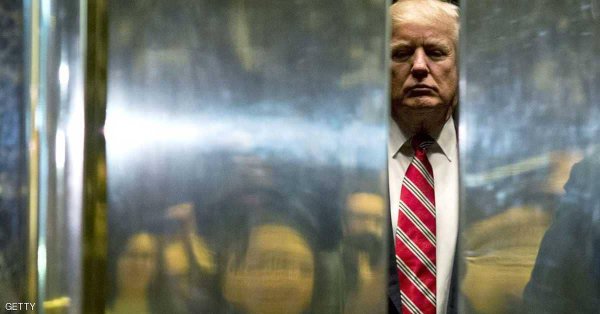When asked by reporters if Washington was gearing up for war with Iran, Trump said simply: "You'll soon find out."
Iran said it did intend to shoot down the drone, which Tehran insists entered its own airspace. Iran denounced the US for violating its sovereignty and vowed to defend its territory.
"The evidence is clear and irrefutable, especially since some remains from the drone were found in Iranian waters," said Iranian Deputy Foreign Minister Abbas Araghchi.
The US said the incident occurred over international waters, calling the incident an "unprovoked attack."
There are growing concerns that Tehran and Washington could make miscalculations in their recent brinkmanship, with potentially dire consequences. Neither country will want to appear to be backing down.
The White House briefed top lawmakers in the Situation Room, amid concerns among key members of Congress about the worsening tensions in the Gulf.
"We are a lot closer today than we were yesterday, and God only knows what tomorrow brings," said Senator Lindsay Graham, a key Trump ally and a hawk on Iran, when asked about the possibility of war.
Chuck Schumer, the leader of the Democrats in the the US Senate, said on Thursday he is worried President Donald Trump will "bumble" into a war with Iran and demanded congressional approval of any conflict with Iran.
Iran said the RQ-4 Global Hawk surveillance drone was shot down by the elite Revolutionary Guard Corps (IGRC) over its airspace.
IGRC chief Hussein Salami referred to the incident as a "clear message" to the US, adding that a "red line" - its border - had been breached.
Stocks of major energy companies rose on US markets following the incident, as did the price of oil.
Washington has blamed Iran for recent attacks on oil tankers in the Gulf and sent more troops and military assets to the region, to back up its substantial forces already based in Arab Gulf monarchies. Iran denies involvement in the oil tanker attacks.
Last year, Trump unilaterally pulled out of the 2015 nuclear deal with Iran and began to reimpose sanctions, aiming to cripple the economy.
There was no sign that Iran had violated the deal, but the US said it was applying pressure to change Tehran's regional foreign policy.
Iran recently indicated that it will, in turn, begin to withdraw from aspects of the landmark agreement, sparking fears it may again pursue a nuclear weapon.
Iranian Foreign Minister Mohammad Javad Zarif said the US was waging "economic terror" against his country. "We don't seek war, but will zealously defend our skies, land and waters," Zarif said on Twitter.
Zarif gave coordinates within Iran's sovereign airspace where he said the spy drone was downed.
However, Lieutenant General Joseph Guastella from US Central Command said the "unprovoked attack" on the drone - an expensive piece of military equipment able to fly at great heights and for more than 30 hours continuously - took place 34 kilometres off Iranian shores.
"The aircraft was over the Straight of Hormuz and fell into international waters," Guastella said. The Iranians used a surface-to-air missile to hit the drone.
There was no independent means to confirm exactly where the drone was hit and whether it violated Iranian territory. A video released by the US military was too unclear to determine the exact location.
Russian President Vladimir Putin warned that a war between the United States and Iran would be "catastrophic for the region." In Washington Chuck Schumer, the leader of the Democrats in the the US Senate, said on Thursday he is worried President Donald Trump will "bumble" into a war with Iran and demanded congressional approval of any conflict.
"I told the president that these conflicts have a way of escalating," Schumer told reporters after a briefing at the White House.
"The president not may intend to go to war here, but we're worried that he and the administration may bumble into a war. We told the room that the democratic position is that congressional approval must be required before funding any conflict in Iran," he added.
The two countries do not have diplomatic relations and have been at odds ever since the 1979 Islamic revolution. More recently, they have been on opposite sides of a host of issues in the Middle East, including Syria, Yemen and Israel.
Trump has staunchly aligned himself with Tehran's regional rivals, Saudi Arabia and Israel, and the US is insisting it will defend the freedom of navigation in the region's waters.
Trump's domestic rivals in the centre-left Democratic Party have been sceptical of the White House, blaming the administration for pulling out of the 2015 nuclear deal and setting off an escalating path with Iran with no clear benefit for the US itself.
The president ran for office in 2016 on a platform of pulling US forces out of the Middle East, and he has appeared more moderate than some of his advisers on Iran.
Iran said it did intend to shoot down the drone, which Tehran insists entered its own airspace. Iran denounced the US for violating its sovereignty and vowed to defend its territory.
"The evidence is clear and irrefutable, especially since some remains from the drone were found in Iranian waters," said Iranian Deputy Foreign Minister Abbas Araghchi.
The US said the incident occurred over international waters, calling the incident an "unprovoked attack."
There are growing concerns that Tehran and Washington could make miscalculations in their recent brinkmanship, with potentially dire consequences. Neither country will want to appear to be backing down.
The White House briefed top lawmakers in the Situation Room, amid concerns among key members of Congress about the worsening tensions in the Gulf.
"We are a lot closer today than we were yesterday, and God only knows what tomorrow brings," said Senator Lindsay Graham, a key Trump ally and a hawk on Iran, when asked about the possibility of war.
Chuck Schumer, the leader of the Democrats in the the US Senate, said on Thursday he is worried President Donald Trump will "bumble" into a war with Iran and demanded congressional approval of any conflict with Iran.
Iran said the RQ-4 Global Hawk surveillance drone was shot down by the elite Revolutionary Guard Corps (IGRC) over its airspace.
IGRC chief Hussein Salami referred to the incident as a "clear message" to the US, adding that a "red line" - its border - had been breached.
Stocks of major energy companies rose on US markets following the incident, as did the price of oil.
Washington has blamed Iran for recent attacks on oil tankers in the Gulf and sent more troops and military assets to the region, to back up its substantial forces already based in Arab Gulf monarchies. Iran denies involvement in the oil tanker attacks.
Last year, Trump unilaterally pulled out of the 2015 nuclear deal with Iran and began to reimpose sanctions, aiming to cripple the economy.
There was no sign that Iran had violated the deal, but the US said it was applying pressure to change Tehran's regional foreign policy.
Iran recently indicated that it will, in turn, begin to withdraw from aspects of the landmark agreement, sparking fears it may again pursue a nuclear weapon.
Iranian Foreign Minister Mohammad Javad Zarif said the US was waging "economic terror" against his country. "We don't seek war, but will zealously defend our skies, land and waters," Zarif said on Twitter.
Zarif gave coordinates within Iran's sovereign airspace where he said the spy drone was downed.
However, Lieutenant General Joseph Guastella from US Central Command said the "unprovoked attack" on the drone - an expensive piece of military equipment able to fly at great heights and for more than 30 hours continuously - took place 34 kilometres off Iranian shores.
"The aircraft was over the Straight of Hormuz and fell into international waters," Guastella said. The Iranians used a surface-to-air missile to hit the drone.
There was no independent means to confirm exactly where the drone was hit and whether it violated Iranian territory. A video released by the US military was too unclear to determine the exact location.
Russian President Vladimir Putin warned that a war between the United States and Iran would be "catastrophic for the region." In Washington Chuck Schumer, the leader of the Democrats in the the US Senate, said on Thursday he is worried President Donald Trump will "bumble" into a war with Iran and demanded congressional approval of any conflict.
"I told the president that these conflicts have a way of escalating," Schumer told reporters after a briefing at the White House.
"The president not may intend to go to war here, but we're worried that he and the administration may bumble into a war. We told the room that the democratic position is that congressional approval must be required before funding any conflict in Iran," he added.
The two countries do not have diplomatic relations and have been at odds ever since the 1979 Islamic revolution. More recently, they have been on opposite sides of a host of issues in the Middle East, including Syria, Yemen and Israel.
Trump has staunchly aligned himself with Tehran's regional rivals, Saudi Arabia and Israel, and the US is insisting it will defend the freedom of navigation in the region's waters.
Trump's domestic rivals in the centre-left Democratic Party have been sceptical of the White House, blaming the administration for pulling out of the 2015 nuclear deal and setting off an escalating path with Iran with no clear benefit for the US itself.
The president ran for office in 2016 on a platform of pulling US forces out of the Middle East, and he has appeared more moderate than some of his advisers on Iran.









 Home
Home Politics
Politics











